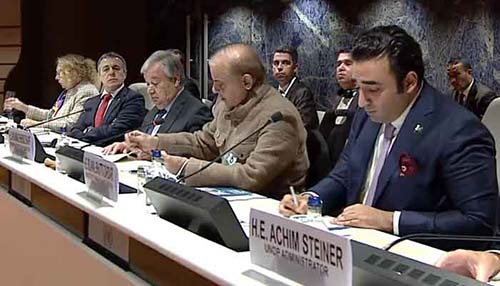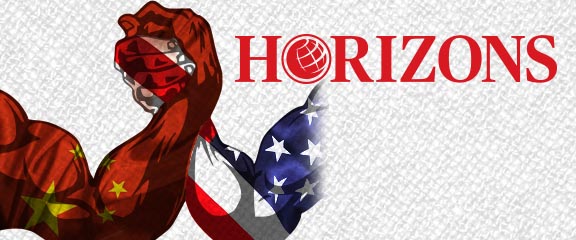This article posits two primary questions: Will the predatory status quo forces succeed in pinning down Imran Khan, or will he survive the assault because of the cult that he has generated based on his narratives against the status quo? Will political engineering – a combination of sleaze, defamation, litigation and institutional intimidation – be able to jettison Khan from his followers’ minds?
Imran Khan remains defiant and determined. He hates the red-lines that others “say” he must not cross. But is the former prime minister on a suicide mission in his attempt to terminate the opposition that he denounces as the “corrupt forces of the status-quo?” Or is he delusional, convinced to overpower the giant “Goliath”? Biblical texts describe the latter as a man armed to teeth but David wears him down smartly. Goliath could hardly move under the weight of the heavy defense wherewithal he wore and thus went down.
Is it the right analogy to draw when comparing Imran Khan with the forces he is pitched against i.e. small David challenging the giant Goliath (the status quo)?
In a way, ‘yes’ for the simple reason that the publicly avowed enemies of each other (the Pakistan People’s Party and the Pakistan Muslim League-Nawaz) are now one with the sole objective of stalling Imran Khan’s way back into power – regardless of the cost that has accrued to the country as a whole. The cost of political transition has been astronomical but the ruling elite is unbothered; the insensitive mindset evident from the over 50 people, including the prime minister, who travelled to Geneva for the Climate Conference — read with a begging bowl in their hands.
What was there to rejoice when almost 90 percent of the pledged funds are project loans against which Pakistan has to match the same amount given in loans? Why blow trumpets on mere promises, especially when the country does not have fiscal space to finance to project loans?
The newspaper adverts on the “achievements” at Geneva were published in nearly all newspapers – worth at least 100 million rupees – was yet another reflection of the old, self-serving habits of an indifferent political elite and an equally culpable sycophant bureaucracy. It was a sad comment on an elite that went begging for funds abroad but criminally spent precious public funds at their own projection.
It is precisely this mindset that represents a challenge for all Pakistanis. During 2013-18, the PML-N governments in the Center and Punjab, cumulatively dished out media advertising campaigns worth at least 40 billion rupees. In one example, a federal ministry spent nearly 15 million rupees on the projection of a model school that had been renovated at a cost of eight million. This means that almost double the project amount was wasted in media projection.

Why should Imran Khan alone cry hoarse about such criminal waste of money? Don’t the poor of the country need these funds more than the rulers themselves?
Shouldn’t this – the wasteful criminal abuse of public funds on media campaigns – be the red-line that the ruling elite must not cross? This mindset indeed has landed Pakistan in near financial bankruptcy and remains the major stumbling block in talks with the International Monetary Fund (IMF) i.e. balance between revenue and expenditure. All donors are now united in demanding that the Pakistani elite must stop living off borrowed money.
The huddle at Geneva also conveyed a similar message; Pakistan shall have to submit to a disciplinary regime handed down by the IMF. The government will have to rationalize the government expenditures that accrues from the massive privileges given to the civil-military ruling elite. Unbridled use of public resources – which actually are loans – shall have to stop, is the message. The presence of nearly five dozen Pakistani ministers and officials at a fund-raising event was not lost on many donors and the government representatives. The same had happened at New York and Sharm el Sheikh when Prime Minister Shehbaz Sharif and others traveled pompously with huge delegations while on a begging mission disguised as climate justice.
Another chord that touches the younger generation’s hearts is Imran Khan’s recurring insistence on the rule of law — equal justice for all. The talk on the rule of law makes all the more sense in a society with injustice, beset with massive unemployment, struck by inflation and reeling from over three million litigations at various courts. Why wouldn’t the dominant majority empathise with the Pakistan Tehreek-e-Insaf Chairman’s equal-opportunity-rule-of-law narrative when they see families of the civil-military elites prosper – with assets multiplying and mostly parked abroad?
This brings us to the issue of the Khan cult? However demeaning the proponents of status quo – the staunch and estranged erstwhile friends – may sound when counting demerits of Imran Khan, including the lowly cropped, engineered audio-video materials, they hardly find any takers of their narrative among the younger generation that craves for employment opportunities, justice and access to services. Most of them appear sick of the same names and faces who have lorded over this country both in uniform and without. The economic plight and social adversity in Sindh, Balochistan, Khyber-Pakhtunkhwa and most parts of Punjab is not because of Khan. It is because of all those who have ruled this country for decades – and still with the worst socio-economic indicators. This has given birth to the Khan cult. The status quo elites cannot scrap this cult from peoples mind without radically changing their way of treating the dominant majority of this country. Like it not, the Khan cult has shattered many myths, exposed judges, generals, journalists and their patrons. Khan has done his job even if he gets marginalized from politics. The rest is on the people of Pakistan whether and for how long can they put up with the predatory, self-serving status quo flowing from dynastic and institutional politics.



